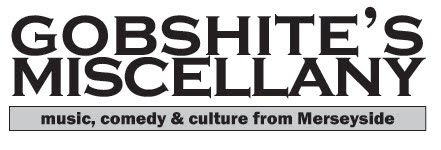The following brilliant piece by Peter Preston was in today's Observer
MEDIA GLOOM? It sometimes seems like a norovirus surging round Heston Blumenthal's kitchen. Great American papers cut salaries (on the New York Times) or slice away a third of their staff (in Atlanta). British groups, from Northcliffe to the Guardian's own regionals, announce hundreds more redundancies. Advertising falls off a cliff. Polly Toynbee and other mainstream columnists suddenly scent a hammer blow to democracy - and, in Polly's case, want local ratepayers to chip in and help out. We're between perfect storm and perfect panic. So there's nothing to do but calm down.
"Don't write off newspapers. They aren't finished," said Sly Bailey, CEO of Trinity Mirror, the other day. "This is absolutely not facing oblivion. We believe in the future of newspapers."
Well, she would say that, wouldn't she? She runs 140 or so titles around the UK - but she's closed 27 of them in the past 14 months, sold four more, and made 1,300 staff redundant. Ad revenue at Trinity plunged 30% in the first two months of 2009. And her share price - once the be-all-and-end-all for misty-eyed investors - has followed suit, from 314p to 25p over 12 months.
Yet she's not part of the rather long pundit queue crying doom via internet bloodbath. She's much more hopeful about real business and real recovery prospects - and she's not alone. Read the authoritative Pew Center annual report on the future of American journalism and you'll discover that "the death of newspapers is not imminent, despite news of bankruptcies and even some closures. The industry still took in roughly $38bn last year, and earned profits in double digits. Some 48m newspapers are sold everyday in the US. Even newspapers whose companies are in bankruptcy are profitable."
In short, Bailey - reminding us, along the way, that 140m newspapers are bought in the UK every week - is right to point out that there's a hell of a lot left. Better to analyse rather than wail.
High-profile papers closing? The Rocky Mountain News and Seattle Post-Intelligencer, one total and one print-version casualty from 2009 thus far, also have one thing in common: they were both one of two papers in town. Denver still has the Post; Seattle still has the Times. And in San Francisco, despite the problems afflicting its Chronicle, Hearst is negotiating cost cuts, not closure. When you look at the victims on both sides of the Atlantic, you see a clear enough pattern.
Those 27 Trinity Mirror closures mostly affect third or second papers in their markets, too, many of them freesheets that couldn't keep an ad revenue stream flowing. Evening newspapers in the US are on their last legs, killed by different commuting patterns, deserted city centres and suburban traffic jams: nothing to do with the net. And many of the same imperatives increasingly apply in Britain.
Factor in simple changes in the way we live. Factor in 30% advertising revenue drops over two brutal months, and blame the crunch, not the net, for that, because web advertising is drooping, too. Factor in the mounds of debt that chains like Johnston Press have wrapped round their own necks, plus extraneous investments unhinged by recession. And what have you got?
Not death by the net, or salvation by the net, but something a little more complex. The really significant US news of the past few days, in fact, has been good, not bad: the purchase, after a year in limbo, of one of America's top 30 newspapers, the Union-Tribune in San Diego, bought by equity capitalists - and clearly bought cheap. Conclusion: print still has a price and is still worth buying if that price is right (which it hasn't been through 20 silly years). Now, as the price goes down, recovery prospects rise.
That won't prevent much evident pain and loss in print's shrinking ranks, but it will begin to rebalance perceptions. Is the 20-person website that now serves Seattle as a residual Post-Intelligencer up to snuff? No, it's thin and ordinary and - above all - short of reporting resource: it direly needs more of the 145 or so print journalists it couldn't afford to keep because average ad takings on the net are only 10% to 15% of what they remain on paper.
"We have an absolute belief in our print brands, but alongside a growing, profitable digital business," says Bailey. Crucially, she's talking not one or the other, but both: a transition of shared necessity. It isn't a future that will comfort those 1,300 who have lost their jobs; bitterness and blame inevitably flow free across recession's landscapes. But it is a future with evidence - not self-feeding hysteria - attached.

No comments:
Post a Comment